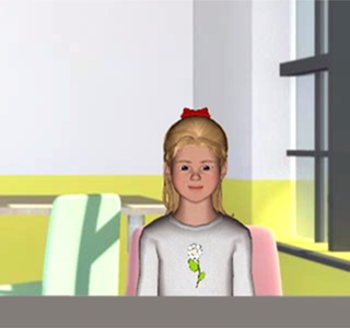Question
I was working with a patient who had bypass surgery and valve replacement. Order received was for swallowing "choking on water" per staff. Per family report and review of his PMH, he has had recurrent "bronchitis" and seen the doctor frequently, allergic
Answer
This is an interesting scenario and I will try and address all the parts to your question to the best of my ability. Regarding the CABG and subsequent dysphagia, Hogue et al. (1995) reported that patient age, time of an intra-aortic balloon pump, duration of intubation, and intra-operative implementation of TEE were all important independent predictors for silent aspiration. I would try and determine how any of these variables may have impacted the patient. The left branch of the recurrent laryngeal nerve has a lengthy path. Therefore, it is possible for potential surgical associated injury at several different locations. The nerve descends the aorta immediately after leaving the vagus nerve. At this point the RLN can be impacted by manipulation during surgery or by cold temperature during external cooling of the heart (Tewari et al., 1996). Impairments to the RLN may potentially impact processes in the swallow including glottic closure, resulting in dysphagia and subsequent aspiration risk. In reference to the oxygen saturation, it is possible that the aspirated bolus into the airway may be leading to hypoxia and subsequent drop in oxygen saturation.
In reference to the aspiration and sensory loss that you described, there have been correlations drawn between a reduction in laryngopharyngeal sensory awareness with advancing age as a component of the dysphagia and aspiration risk (Aviv et al., 1997). The case history also mentioned that the patient was living on his own possibly having dementia, and having recurrent bronchitis. There may have been a scenario where he was intermittently aspirating at home, possibly not aware of the symptoms. Then the patient may have had a functional decline during the hospitalization and could have been having more difficulty compensating for the dysphagia because their system is more medically compromised.
Regarding your impression of reduced laryngopharyngeal sensation, Aviv et al. (2002) showed that 93.5% of patients in their cohort who had an absent laryngeal adductor reflex and severe laryngopharyngeal sensory loss also aspirated thin liquids. The questions had mentioned that the endoscope brushed past the epiglottis and there was no reaction. The sensory nerve for this portion of the supra-glottis is the internal branch of the superior laryngeal nerve (ISLN). Among other areas of the larynx, some of this nerve's sensory branches are distributed to the epiglottis and epiglottic glands. This brush of the scope without reaction likely reflects laryngopharyngeal sensory reduction. The fasiculations may be a component to the dysphagia and is concerning for additional neurologic dysfunction. This is often associated with a progressive bulbar palsy symptom. It would seem further neurologic work-up would be warranted.
Another area you spoke of was allergic rhinitis. One of the most common characteristics of chronic rhinitis is post-nasal drip. Post-nasal drip may lead to chronic sore throat and chronic cough. This may be another correlation to his recurrent bronchitis. Another area mentioned was wet vocal-quality. Wet dysphonia suggests either: laryngeal bolus penetration, laryngopharyngeal reflux, and/or posterior nasal drainage. Given your report of his bronchitis and allergic rhinitis, this may certainly be a correlation for his condition. If the patient is having wet dysphonia that is laryngopharyngeal reflux based, then this may be associated with laryngopharyngeal edema and erythema. Increasing severity in arytenoid edema levels has been correlated with laryngopharngeal sensory impairment in certain patient with FEESST testing.
Hogue, C.V. et al. (1995). Swallowing dysfunction after cardiac operations: associated adverse outcomes and risk factors including intraoperative transesophageal echocardiography. Journal of Thoracic Cardiovascular Surgery, 110, 517-522.
Tewari, P. et al. (1996). Combined left-sided recurrent laryngeal and phrenic nerve palsy after coronary artery operation. Annals of Thoracic Sugery, 61, 1721-1723.
Aviv, J. et al. (1997). American Journal of Medicine, 103 (5), 74S-76S.
Aviv, J. et al. (2002). Laryngeal adductor reflex and pharyngeal squeeze as predictors of laryngeal penetration and aspiration. Laryngoscope, 112 (2), 338-341.
To learn more about dysphagia and a variety of other topics in the field, please visit the SpeechPathology.com Library to view our live, recorded and text-based courses.
Eric Blicker, M.A., CCC-SLP.D, BRS-S, is an ASHA board recognized specialist in swallowing disorders. Eric received his doctoral degree from Nova Southeastern University and was trained in FEESST by Dr Jonathan Aviv, the otolaryngologist who developed FEESST. He has provided FEES training courses in CT, MA, FL, MO, CA.

